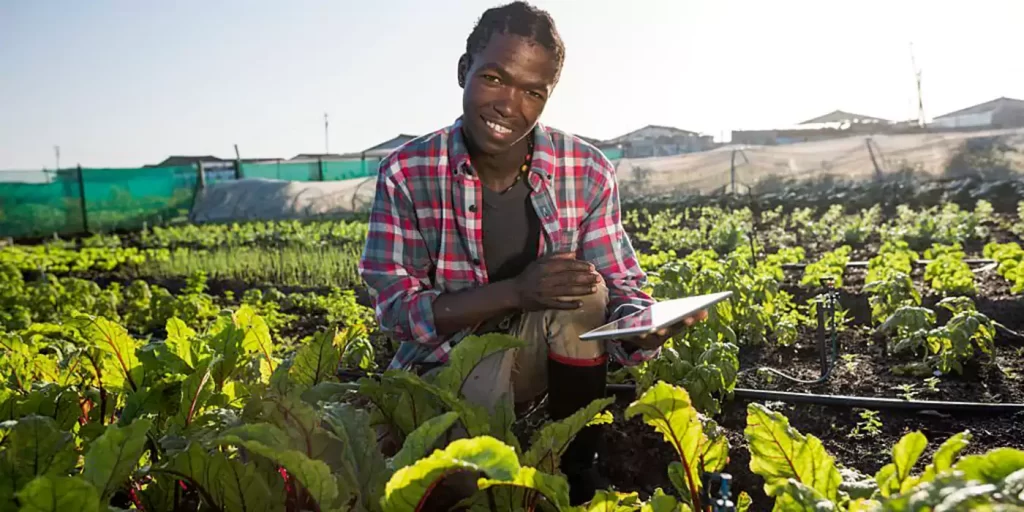
After starting your farm, let’s say you have finished planting your crops and stocking your livestock. What will determine your success is how you manage your enterprise. We tend to think that farming doesn’t need a lot of management and time but it does.
This is where most people go wrong, you start a project, invest a lot of money in establishment and you don’t give in your best at management stage. You risk loosing all your input.
Let’s look at some of the key considerations in management of a farm for productivity, sustainability and profitability.
key Strategies For Managing Your Farm?
1. Time And Commitment
Since we are talking about farming as a business, I will take you to the business side first. When you start a business lets say a boutique, do you leave the shop closed and never go there every day? Not really you must wake up every day and open your shop for people to buy.
Even if you have workers there, you can’t take a week without visiting your business.
This is the same for farming; it’s a business that demands a lot of your time and commitment for it to pay you off.
You must dedicate time for it at least once a week or after 2 weeks maximum. But surprisingly most people doing farming mostly the working class cooperates take even a month or more without visiting their projects, what happens, the workers steal things, plants and animals die off and in the end the farmer makes losses.
They start saying farming can’t make you money, I invested a lot now check the loss. That’s why the most successful farmers in east Africa are retired people and people who have decided to do farming as a full time business. So if you are not ready to give time to your farm, better not start it.
2. Record keeping

Let’s first go back to the business line, imagine you have a hardware business, you buy and sell building materials. Without proper records how will you know how much you bought a specific item and how much to sell it then how much profit are you making or loss.
In order to track your progress as a business, you must have a system of keeping records. Most of our farmers don’t know whether they are making profits or losses because they never keep track of all their inputs.
Starting from day one ,you must have a book for your project or farm, write down everything you buy be it a hoe or a panga, note down all expenses like labor and in the end calculate and see the total amount of money you have invested.
This will be easy for you to know whether you are making a profit or loss. Other records you need are livestock data; each animal should have a data base to track its behaviors. In crop, you must record every activity you do like land clearing, planting, spraying and others.
Actually you need to have a farm office where all documents are kept. I visited some Kenyan farm and I was shocked. This guy had only 5 acres and many projects on it; he had his home there and a farm office with a computer, printer and full time internet.
For everything that got out of his farm is first recorded in the office and payments are made. What was shocking was, even for him to get a banana bunch from the plantation for home use, he has to first sign for it at office.
This is what it takes to operate a farm as a business
3. Human Resource Management
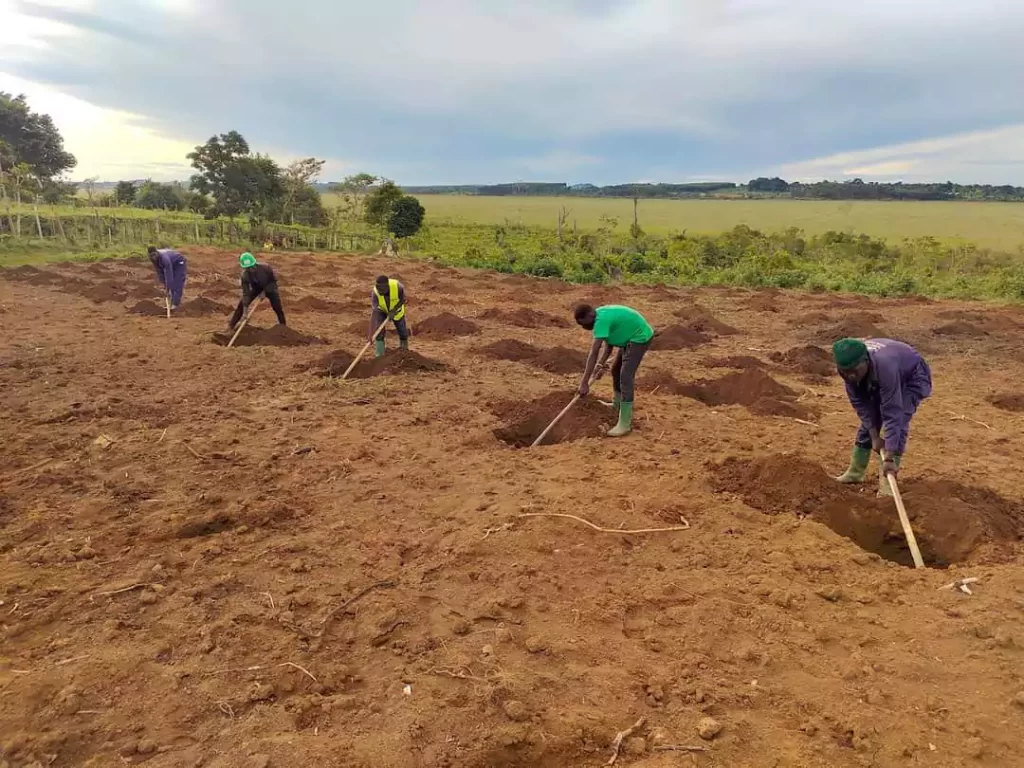
First of all you need to recruit competent staff at your farm, have at least a trained farm manager and other workers depending on the size of the farm.
Don’t just get anyone from the village because they are idle to manage your investment. Most of our farmers employ some relatives who have been idle in the villages, a son to an uncle and other relations like that.
Consider The Following As You Recruit
- Honesty
- Self Confidence and energetic
- Commitment and the Zeal to work
- Positive Attitude
- Creativity
- Technical and Knowledgeable
You may not need many full time workers at the farm since they need a lot of resources in feeding them and paying them monthly, you can have contractual workers who come in whenever work is there. It all depends on the size of your farm and the enterprises there.
After recruiting these workers, you must learn how to mange them and retain them for a longer time.
How To Manage Your Farm Workers
- Paying them on time and well
- Respect them and appreciate their service
- Surprise visits and supervision
- Salary increment
- Visit your workers or attend their parties/Functional events
- Provision of staff houses
- Let them sign for their wages
- Bring them some gifts like clothes, sugar and bread whenever you visit the farm to motivate them
- Work with them when you visit the farm
- Allow them to grow their own crops within the land; they will feel they are part of the system
- Make sure you get all the details of your workers in a bio data form such that incase they get a problem ,you know who to contact
4. Hygiene
For livestock, you must ensure that animal houses are clean all the time, poor hygiene causes a lot of disease outbreak and your animals might die off.
Also important to note is putting a disinfectant section at the main gate of your farm such that whoever enters the farm doesn’t bring in the germs and likely disease causing agents in the farm.
5. Basic Agronomic Practices
In managing your farming enterprise, you must ensure you follow the basic agronomic practices in agriculture. Mostly for the crop production: Here are some of the major good agricultural practices
i) Mulching
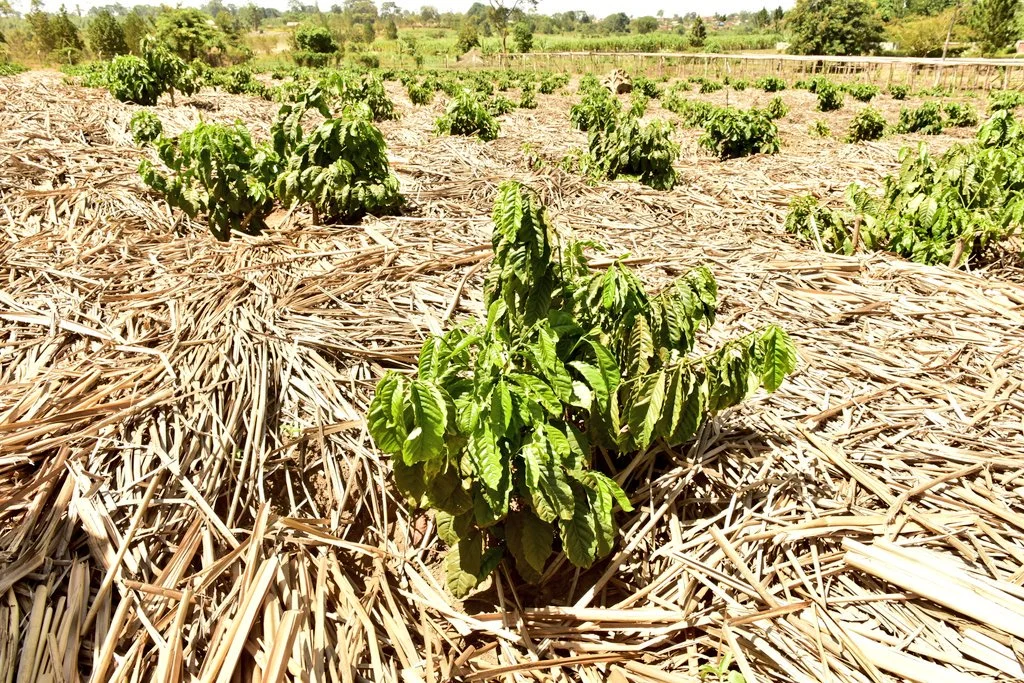
This is the process of covering the soil and make more favorable conditions for plant growth and development.
Benefits:
- Mulching prevents water evaporation hence keeping water in the soil
- It prevents growth of weeds since it creates a bad environment for them to grow.
- It helps in reducing soil erosion in times of heavy rains.
- Its boosts germination
Materials Used In Mulching
- Dry grass
- Plastic mulch
- Saw dust
- Coffee husks
- And other dry agricultural wastes that decompose
ii) Irrigation And Water Management
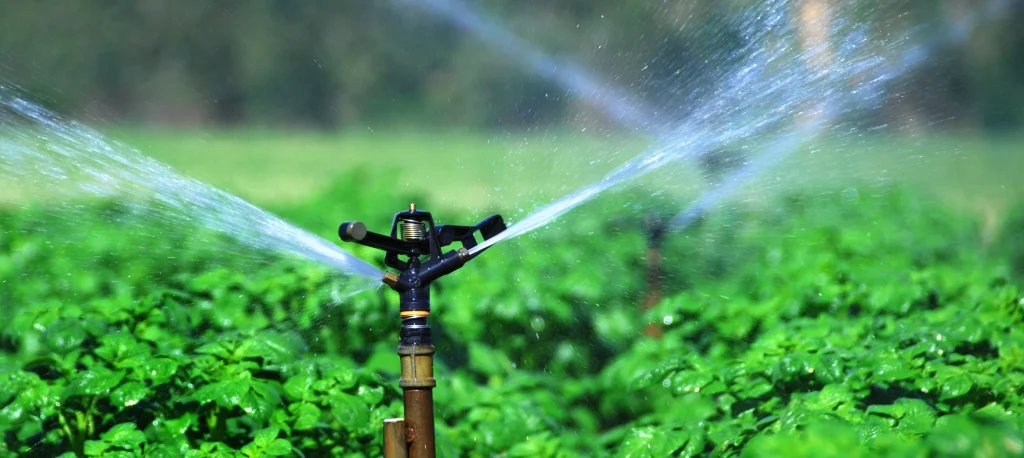
You must plan to have water on site to produce through out the year, not only waiting for seasons. You can do this by conserving water like rain water harvesting, having water tank to reserve and keep water for the dry season.
Types Of Irrigation
- Drip irrigation
- Sprinkler irrigation
- Bottle irrigation
- Hand irrigation
iii) Soil Management And Fertilizer Application
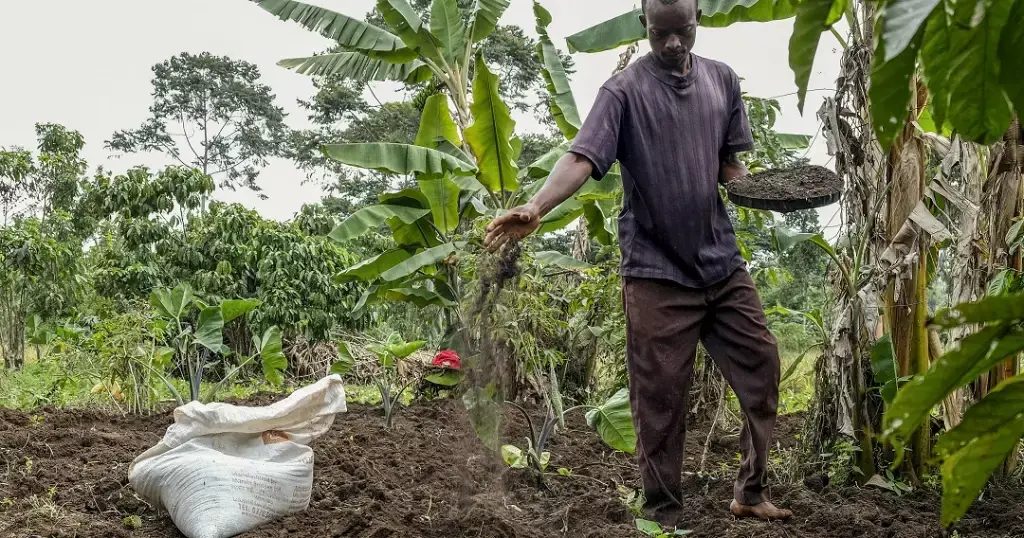
Soil is a key factor to any plant growth and development, you must develop and mange you soil well. Soil alone is just a growth media and may not be useful if it doesn’t contain the major nutrient elements.
What the soil needs to have for plant growth:
Nitrogen, Potassium, Phosphorus, Calcium, Organic matter and other micro-nutrients
You can get these into your soil by applying fertilizers like: NPK, CAN, and organic manure like
compost, cow dung, chicken droppings, rabbit manure and other liquid fertilizers.
Organic manure mainly farmyard takes over 4 months to be utilized and used up in the soil so you
will need to keep adding to keep your soil nutrient rich.
Order For Organic Fertilizers With Us
iv) Weeding
This is the systematic removal of the unwanted plants from your garden. Anything that you dint intend to grow and it grows in your garden is a weed.
Weeding helps to reduce competition for nutrients in the soil and also control pests since some insects breed from those weeds. It also helps to keep your garden clean and easy to walk
through
Ways of weed control
- Spraying with herbicides: this involves use of selective or non selective herbicides to spray and kill the weeds; it can be done before or after planting.
- Hand weeding: this involves using hands to pick out weeds; it’s more effective as you don’t risk destroying your main crop.
- Use of hoes and other tools: this involves use of tools like hoes however in some delicate crops this might be a risk to destroy the main crop as well.
v) Pruning And Thinning
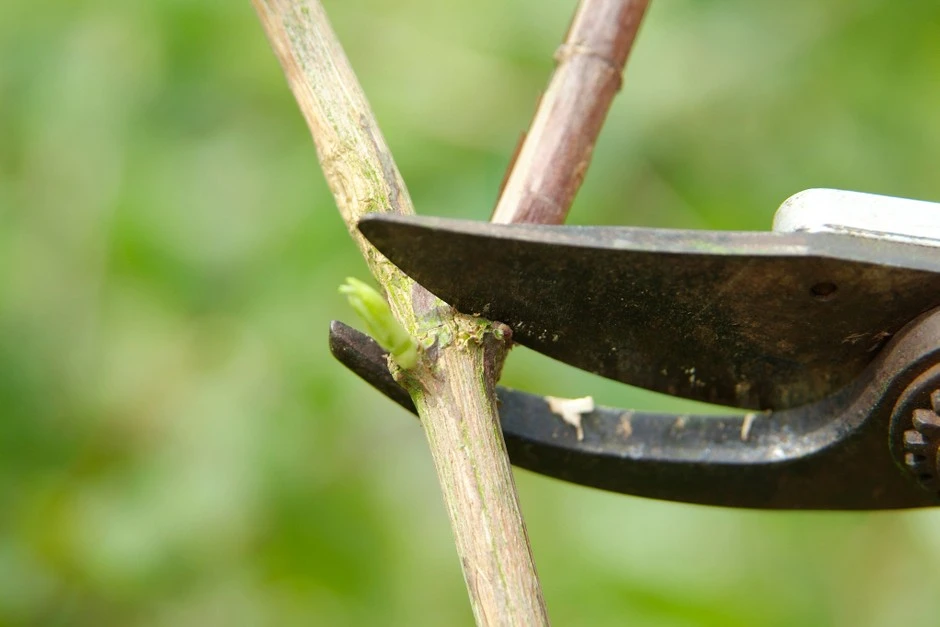
Pruning is a selective process of removing some old, affected, excess branches and leaves off a plant to
allow it grow better and reduce competition of nutrients. We prune as well to allow light through the plant for easy photosynthesis using tools like knives, pair of scissors etc.
Thinning involves removal of some plants from the garden to give more space and room for good growth
and yield. This is important on all crops like fruits, vegetables and other perennial crops.
vi) Pest control

This is the process of identifying, preventing and controlling pests. A pest is anything that attacks, destroys and reduces the value of our crops.
Types of Pests
- Animals like man or rodents
- Insects
- Diseases
- Weeds
Pest Control Methods
- Biological: This involves use of other rival animals to feed on the pests; you can bring in a dog at the farm to chase away squirrels or monkeys.
- Chemical: this is the use of pesticides to spray on the crops. This is so effective but risky and not healthy.
- Cultural: this involves use of cultural practices to prevent pests, its an organic and natural way of controlling pests like crop rotation, mulching , deep cultivation and others.
vii) Crop Rotation
This is a systematic practice of growing a series of different types of crops in the same area in sequenced seasons. It is done such that the soil is not used for one set of nutrients and helps to reduce soil erosion and increase soil fertility and yields.
It also helps to prevent soil born diseases and insects. You can grow some cereals, legumes and other crops interchangeably season after season.
Conclusion:
Starting a farm alone is not enough to guarantee success in the business, managing it and maintaining it is actually the biggest determinant to whether you make money or not.
So lets all give much attention to managing our farms for best results and with this we will become agribusiness men and not just peasant farmers.
in the next blog, we will discuss how to make sure your farm is sustainable, however you can as well read: 7 Proven Tips For Starting A Successful Farm In 2023 For Beginners

Leave a Reply